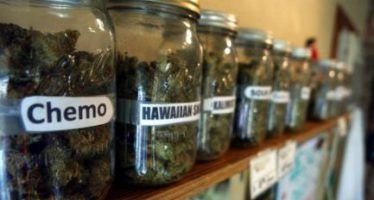Big Brother in your car?
APRIL 8, 2010
By KATY GRIMES
Sen. Alan Lowenthal, D-Long Beach, has introduced a bill that would require the Department of Motor Vehicles (DMV) to develop a program to assess drivers for vehicle miles traveled (VMT) tax in California.
Specifically SB1299 would require the DMV to develop and implement, by Jan.1, 2012, a program designed “to assess the issues related to implementing a vehicle miles traveled (VMT) fee in California.”
In February 2009, U.S. Transportation Secretary Ray LaHood announced that he wanted to consider taxing motorists based on how many miles they drive rather than how much gasoline they burn. His comments came on the heels of report from a special commission created by Congress which reported that the current 18.4 cents a gallon gas tax and 24.4 cents a gallon diesel tax are not raising enough money to keep pace with transportation costs.
Although the LaHood proposal was struck down, Lowenthal is taking aim at the issue in California. Lowenthal’s measure would lay the groundwork for taxing motorists based on how many miles they drive.
Not taking a hint from the failed federal attempt to tax motorists on miles driven rather than fuel consumed, Lowenthal continues to push his own version of the driving tax.
Lowenthal is the same state senator who authored SB518, a measure that would eliminate free parking in California.
The concept was tried in a pilot program in Oregon. If California follows Oregon’s lead, a device will be installed in each car that tracks the number of miles driven. Idaho’s governor has discussed the idea. A North Carolina panel suggested in December that the state start charging motorists a quarter-cent for every mile as a substitute for the gas tax.
A tentative plan in Massachusetts has drawn complaints from drivers who say it’s an Orwellian intrusion by government into the lives of citizens. Other motorists say it eliminates an incentive to drive more fuel-efficient cars because gas-guzzlers will be taxed at the same rate. In each of those instances the proposed tax-by-the-mile proposal was offered as an alternative to the state gasoline tax. There has been no statement from the author’s office specifying that a tax-by-the-mile system would serve as a replacement for the current California gas tax, however, Lowenthal’s office referred me to Jennifer Gress at the Senate transportation Committee who clarified that “the bill really authorizes the DMV to to a pilot program,” in order to provide information to the legislature. Gress said the bill gives flexibility to the DMV on how they do it and wasn’t actual implementation. When I asked how the DMV would know whether the program works or how much money it will provide without actually installing the devices into people’s cars, she said that the DMV would be “studying the issues, talking to people and highlighting the issues,” and “possibly doing a small pilot program.”
It seems that the only reason this has not been implemented yet in California is that a mileage tax would prove to be a disincentive to pursue fuel-efficient and alternative fuel vehicles. In January 2005, the Air Quality Committee published a report (HERE) Acknowledging that fuel-efficient cars are the reason for the lower gas tax revenue in California. The committee report summary is telling and perhaps what continues to embolden certain lawmakers: “While they may vehemently disagree on its merits, both opponents and supporters of a tax-by-the-mile program must agree that it is an innovative proposal, one that has received considerable attention in both the legislature and the media. Lawmakers, environmentalists, bureaucrats and industry representatives should continue this trend of creative thinking while moving toward practical solutions to California’s transportation and environmental needs.”
For lawmakers to introduce yet another tax assessment instead of making cuts, especially in a department fraught with waste, is another example of the waste, fraud and abuse so prevalent in state government.
Californians have a right to know where transportation money is being spent, why our decrepit roads are ranked near the bottom of any state in the country, and why the state is now proposing a Big-Brother like device that will provide information about where people are in their cars at all times.
SB1299 is scheduled to be heard in the Senate Transportation and Housing Committee on April 13.
Related Articles
Sunset state agencies?
APRIL 12, 2010 By STEVEN GREENHUT Sen. Dennis Hollingsworth, R-Murrieta, has introduced legislation, on behalf of the Schwarzenegger administration, that would
Minimum Wage Hike Would Hurt Poor
JAN. 18, 2011 By JOHN BRINKMAN One of the first labor proposals (AB10) to be considered under Gov. Jerry Brown’s
CA considers state pot bank
Grappling with the regulatory challenges faced by liberalizing marijuana laws, California officials floated the idea of a state-run bank for



